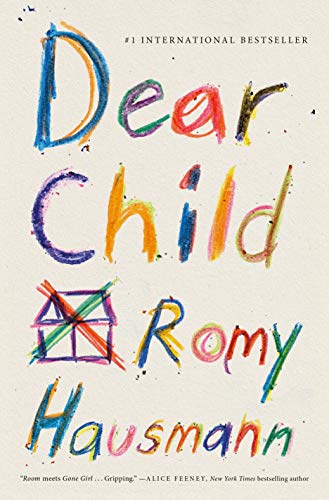Dear Child: A Novel

Novels of mystery and suspense and thrillers more often than not turn on event rather than on complex emotion. There are some “genre” novels, however, like William Kent Krueger’s Ordinary Grace, that demonstrate a richness of character and the authentic sense of place of novels classified as more literary. Mysteries and thrillers keep the pages turning, your heart in your throat, but more often than not they are short on multi-dimensional, psychological dilemmas. And it’s more difficult to find books in the league of mysteries and thrillers with wholly original plots and juxtapositions.
Enter Dear Child, a first novel by Romy Hausmann, a German writer who appears to have done writing for television. Her narrative is entirely fresh and original: a predatory man kidnaps a college-aged woman named Lena, holds her hostage for years in a cabin deep in the woods, rapes her continuously with the result that she bears him two children. But then, mysteriously, Lena disappears (we assume that he has murdered her) and the man then abducts and enslaves another woman whose name is Jasmin but whom he insists on calling Lena. This unnamed man continually rapes his second captive while forcing her to mother his two motherless children.
This is a particularly gruesome storyline, especially because it portrays the children of an unholy alliance and how, having witnessed and endured their father’s violence against both their mother and their surrogate mother, these children stoically suffer. The plot immediately brings to mind Emma Donoghue’s Room, a novel in which a woman is taken into captivity, repeatedly raped, gives birth to the child of her abductor, and eventually escapes. Donoghue’s novel, cast from the child’s singular point of view, creates a rare intimacy, whereas Haussmann’s is a kaleidoscopic narrative that alights in various points of view, some of them in first person, so we end up with a much broader canvas and a perch from which to follow the narrative developments from many different angles.
Jasmin’s captivity lasts only four months, and she is able to end it by braining her abductor with a heavy crystal snow globe. She escapes the cabin in the woods, and in her desperation to flee, runs right in front of a car and is nearly killed. But that is only the beginning. Lena’s parents, who have been hoping for more than a decade to find their daughter alive, now have to contend with their grandchildren, as yet unknown to them. And this presents a whole host of other harrowing circumstances: children of captivity being introduced into mainstream life and the vicissitudes that arise from being brought up in military-like sequestration.
The novel’s strength, therefore, is the author’s careful and thoughtful depiction of children as unwitting victims, both of their captivity and the world beyond the perimeter of the only place they’ve known: a house in the woods. Their muted, confused pain is palpable. And indeed, this finely wrought novel actually becomes difficult to read because the author has so expertly rendered the suffering of all its characters: the guilt that Jasmin feels for having murdered the children’s father right in front of them as her means of escape, Lena’s parents’ struggling to provide a home for her offspring and protect them from the probing of journalists camped outside the house. And then the portrait of the pain visited upon guileless innocents.
This landscape of pain is reminiscent of the kind of suffering experienced by the McCauley Culkin character in The Sixth Sense, a film that while captivating and involving, is also often excruciating to watch. And indeed, it is the suffering children in Dear Child who propel this captivating novel to its heartbreaking higher ground.